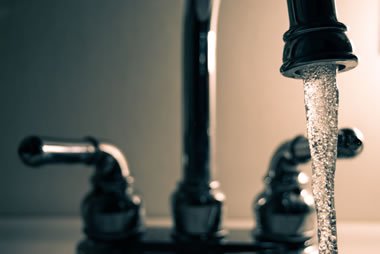Is your Legionella Control Plan Failing to Protect People?

In the UK every business operating a water system must, by law, assess the potential risks from legionella and Legionnaires’ disease and then put in to place and maintain suitable safety precautions to protect their employees and others from harm.
However, developing an effective risk management plan to control the presence and levels of Legionella bacteria in your hot or cold water systems is only part of the equation. It’s also essential that you also make sure the controls you put in place are sufficient to do the job required of them. It is one thing to put measures in place to support your legionella control plan, but quite another to make sure they are working as they should.
When water systems become contaminated with legionella
When problems arise leading to water systems becoming contaminated, they often fall into familiar categories. You can read more about those below.
Are the water temperatures enabling the bacteria to flourish?
Legionella loves water with a temperature of between 20 and 45 degrees Celsius. Regular checks should ensure the cold water is stored and outlet temperatures are below 20 degrees C, and the hot water outlet temperatures are at least 50 degrees C, or higher in healthcare premises (55oC).
Are you keeping appropriate records?
You should be able to look over your legionella management records to see what was done, by whom, when, if problems were identified and what action was taken. If not, there is a greater chance of things going wrong. It becomes easier for someone to assume someone else conducted testing, for example, when this may not be true at all.
Is someone designated as the responsible person for legionella management?
There should be at least one senior person who has a recognised role in maintaining a safe water system. This person should be competent to carry out the role and they are usually referred to as the competent or responsible person. Ideally, someone else should be appointed as a backup or deputy, in case the first person is away for some reason. Both the responsible person and their deputy should be appropriately trained.
All this helps to ensure the proper tests and control procedures are always completed as they should be.
Get up to speed with expert responsible person training
Are the cold water storage tanks regularly cleaned and inspected?
If the cold water storage tanks are dirty or in disrepair, there is a greater chance a build-up of sediment or contamination will occur, or the water inside the tanks could stagnate because of a lack of flow. Sediment, disrepair or stagnating water could mean the tank needs some repair work. Alternatively, if the system is not being correctly maintained, it will make more likely that problems will arise. Annual inspections, proactive maintenance and disinfection should help to guard against this.
Is there an up-to-date legionella risk assessment in place?
An up to date legionella risk assessment should be in place and reviewed regularly, and certainly whenever a change is made to a hot or cold water system, when there are staff changes or you suspect the water system is out of control. The assessment will identify where the risks from legionella lie and lead to proper management of those risks. If the current risk assessment is long overdue to be reviewed, it increases the odds that problems may occur.
Starting the risk management process with a detailed risk assessment
Are you using external contractors as part of your legionella control plan?
If you are using external contractors to help control legionella risks you must make sure that they are competent to do their job properly. A competence audit may be a good idea to confirm this. It’s also important that you clarify their roles and responsibilities to avoid confusion over who does what, when etc.
If your legionella risk management plan is not working the way it should, it is very likely one of the above elements (or a combination of them) will be to blame. Finding the issue is the first step in resolving any problems.
Legionella and water safety specialists
Our teams of water safety specialists support those responsible for the control of waterborne pathogens including Legionella bacteria in the workplace, helping them to protect their people and meet their health and safety obligations in this specialist area. We deliver professional water safety legionella risk assessments, water testing, independent compliance auditing, City & Guilds training and other environmental risk management services that help keep staff, students and others safe.
If you have questions about any of the issues raised above or you would like to speak with one of our legionella specialists please call us today on 0330 223 36 87 or contact us here.


